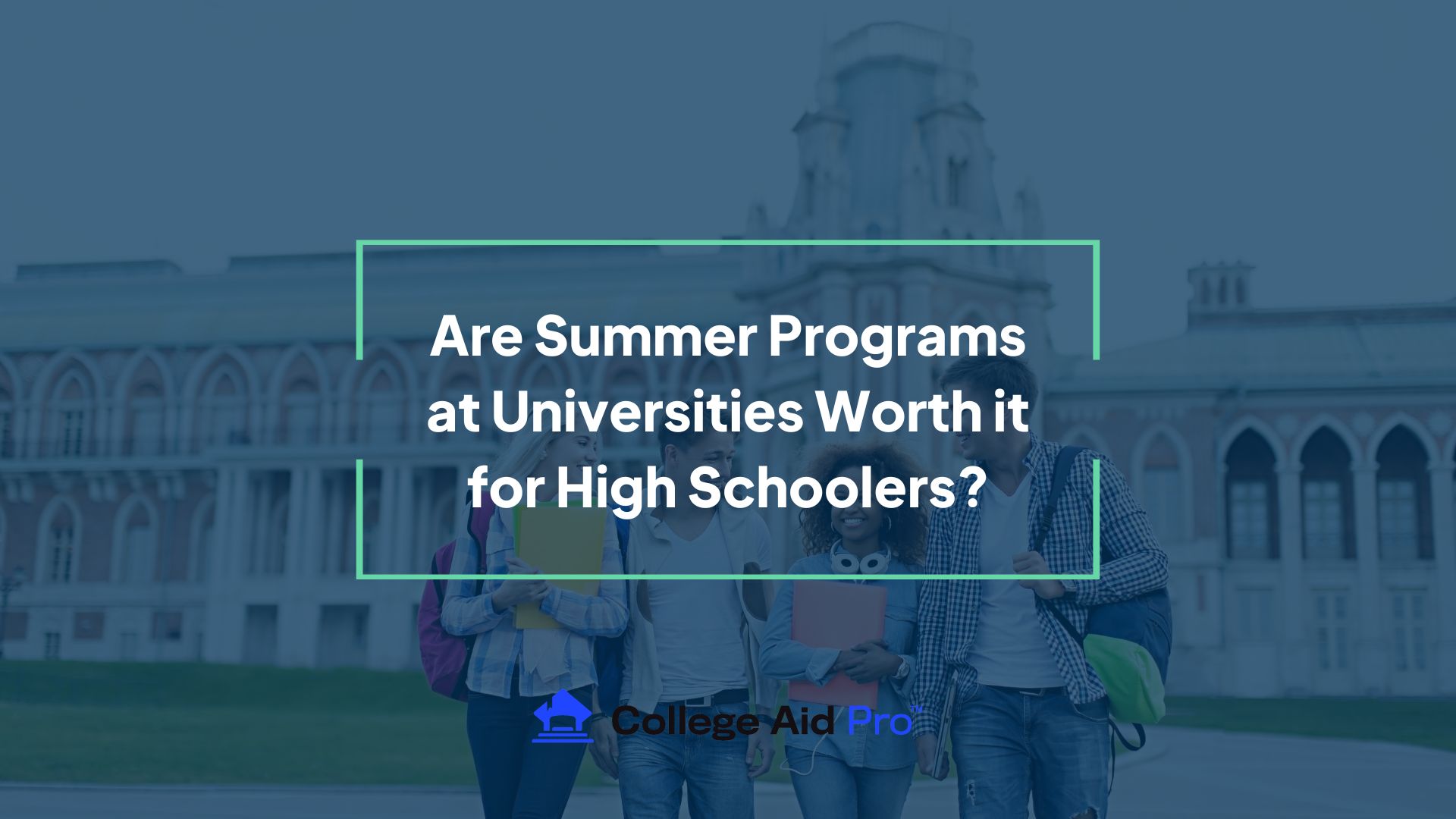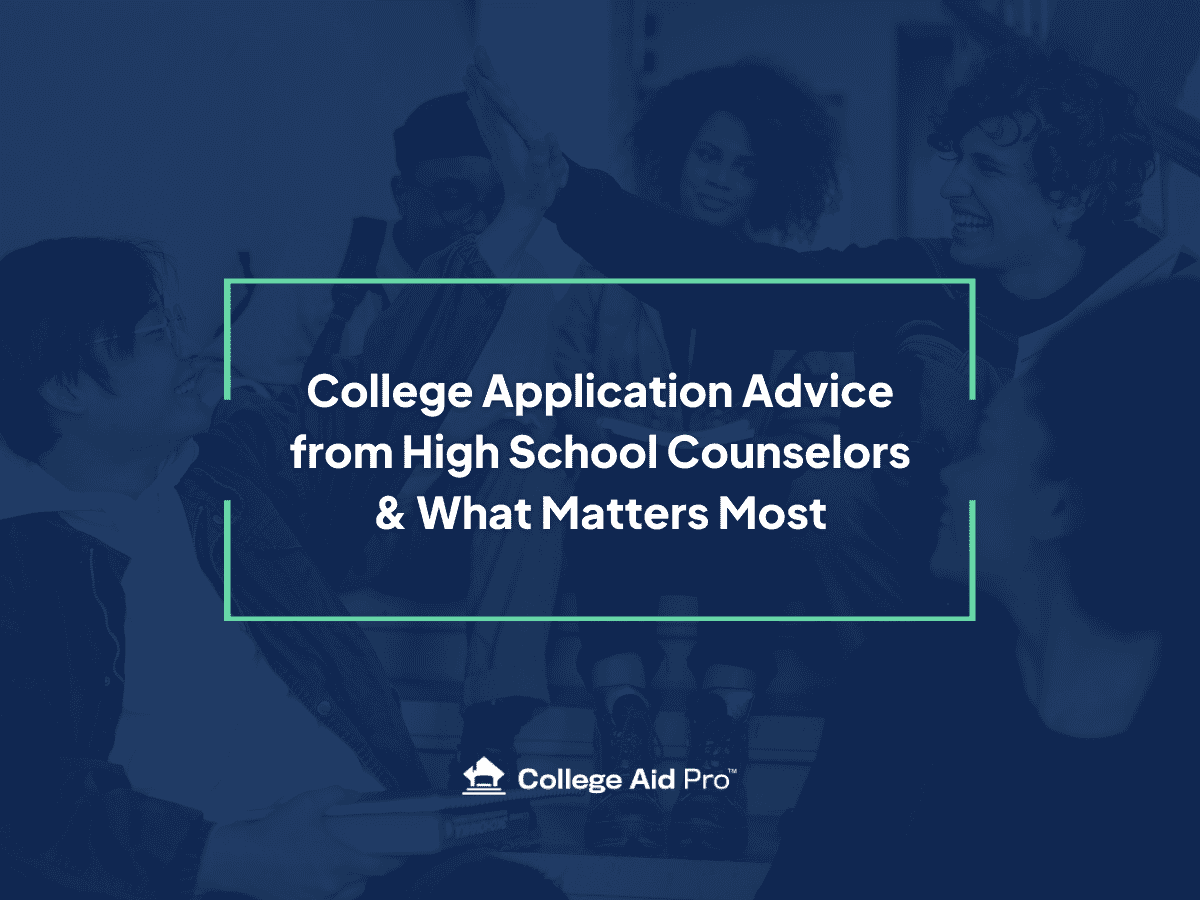Every parent wants their high schooler to have a smooth transition to college. They want them to get into their dream school, graduate with little to no debt, and have success in the next stages of their life.
But with many college programs being extremely competitive, parents are always looking for ways to give their students an advantage over others at their dream school. Some parents think the best way to do that is for their student to go to summer programs at the university (or universities) they’re interested in attending.
Is that really effective? Do high schoolers actually get an advantage in admissions or scholarships when it comes to summer programs at universities?
The short answer is, probably not. Katherine Cohen, founder and CEO of the college counseling firm IvyWise says, “Going to a certain summer program will not be the tipping point for their admission.”
Even though these programs won’t give your student a direct advantage at admissions, there are still plenty of other advantages to attending a summer program.
Why your Student Should Still Attend a Summer Program at a University
- Assess School Fit
College campuses are pretty large and can be a little overwhelming. The new environment, the kinds of buildings on campus, different programs, the town in which the University exists, and diversity of student population can be factors that your student needs to consider to determine whether or not the school is a good fit.
A summer program gives students a good feel for all of these factors and then some in a relaxed and personal way.
Campus visits usually are very short in comparison and don’t always give students the full perspective. Having this first-hand, personal experience of different aspects of the university through a summer program can help your student understand if the school is somewhere they see themselves for next 4+ years, or if they should consider other options.
- Meet Potential Future Classmates
Likely, the new people your student will meet at the summer program also are considering going to the same university. This gives your student the opportunity to connect with others who might also be going to the same school. This can be a major advantage in feeling less like a fish out of water when they start their campus move in just a year or so later.
With approximately 25% of first-year undergraduate students dropping out each year, feeling a sense of community can help students feel involved and want to keep attending school. Having friends, or at least being familiar with others attending the same university can build that sense of community much faster.
- Prepare for College Life
These summer programs typically require students to be away from their family for the week(s) they attend. It allows them to live in the dorms, eat in the dining halls, be on campus, and generally get a mock experience of college life.
They’ll get a taste of the freedoms and some challenges going off the college may bring. This can help them feel prepared and ready for when they join campus full time. Or it can provide keen insight that maybe being 6 hours away from home is a little further than they really might want. Either way, the first hand experience can help with their ultimate college decision.
- Receive College Credit
Some summer programs like the Harvard Secondary School Program run for 7 weeks and allows your child to earn 8 college credit house when completed on campus. This is a great opportunity for your student to get a jump on some college credits while participating in an immersive pre-college experience, without all the same stakes that their Freshman year might bring.
But do keep in mind, these kinds of programs can be costly. We’ll get into that more in a second.
Some Things to Consider before Attending a University Summer Program
- Summer Programs can be Expensive
As we mentioned earlier, these pre-college summer programs are costly. In fact, the Harvard Secondary School Program costs anywhere from $3,600-$13,750 + a $75 application fee! Certainly, there are cheaper summer programs, but it’s important to keep in mind that these won’t be free and likely won’t be cheap.
- Can’t Work & Save Money Instead
Summer is a prime time for your student to get a job to save up for college, a car, new computer, etc. A lot of employers welcome high schooler help over the summer and are starting to fill those positions towards the end of the school year, before summer is in full swing.
If your student chooses to attend a summer program, especially one that lasts most of the summer and not just a week or two, they are missing out on the opportunity to make money and save it up.
- Likely Won’t Help with Admissions
We touched on this earlier. Although universities do like to see a well-rounded portfolio and encourage students to make the most out of their summers for academics and extracurriculars, a summer program likely won’t boost your student’s odds of getting into a specific school just because they attended. The summer program is a great experience for so many other reasons, but won’t help with admissions.
Now What?
If your student is considering going to a summer program, it’s important to sit down and weigh the pros and cons of their attendance. Although there are many positives of these summer programs like college preparedness and college credits, things like cost and inability to save money can be major factors to not going, as well.
If wanting to save up for the cost of college is a factor keeping you from attending a summer program, now is a great opportunity to take a look at a Net Price Calculator for the potential universities you’d like to attend. A Net Price Calculator assesses the amount that a student will pay to attend a college in an academic year and will give you an understanding of what you need to save to attend or some open funds that could help pay for a summer program.
MyCAP gives you an accurate and instant net price calculation for any college you’re looking at. With your MyCAP account, you also get access to a database of over 9.1 Billion Private Scholarships and a one-stop tool to compare & appeal award letters, to ensure you’re getting through college with as little debt as possible.



